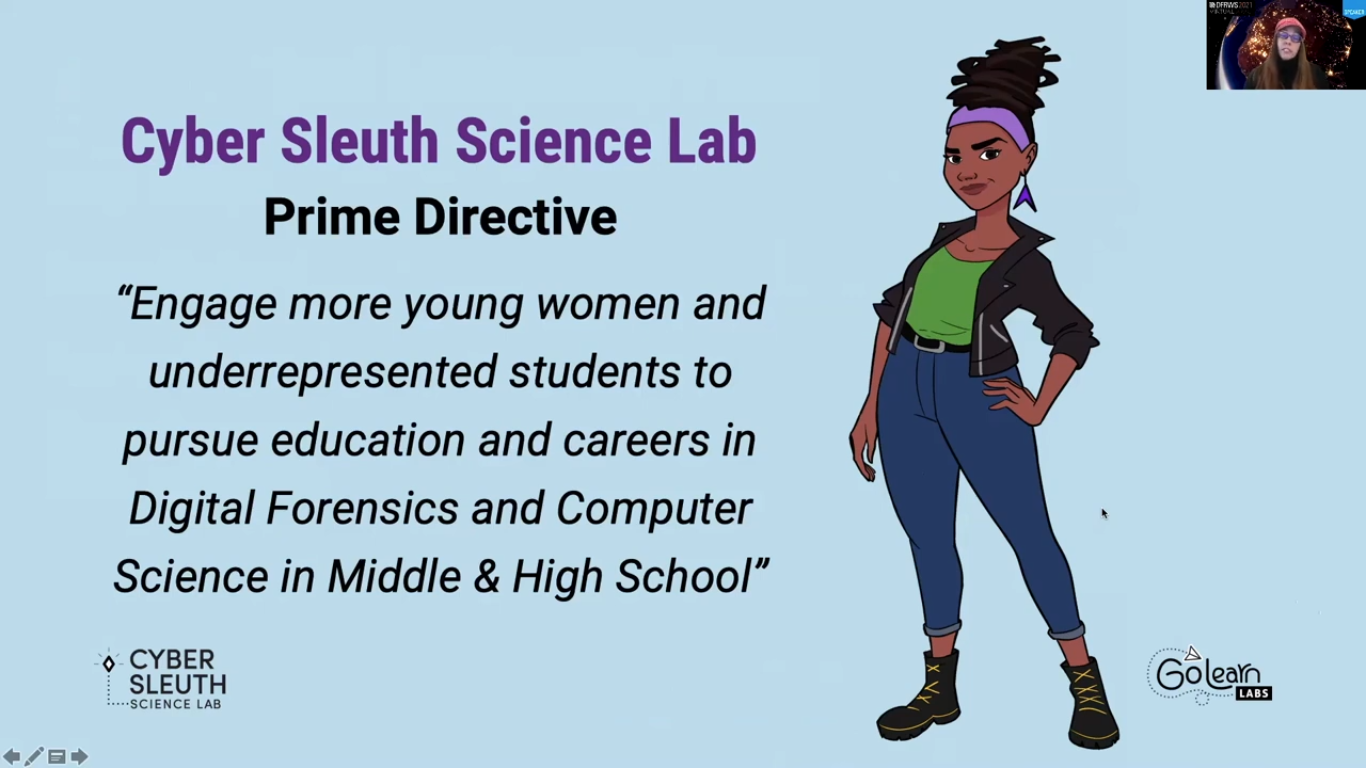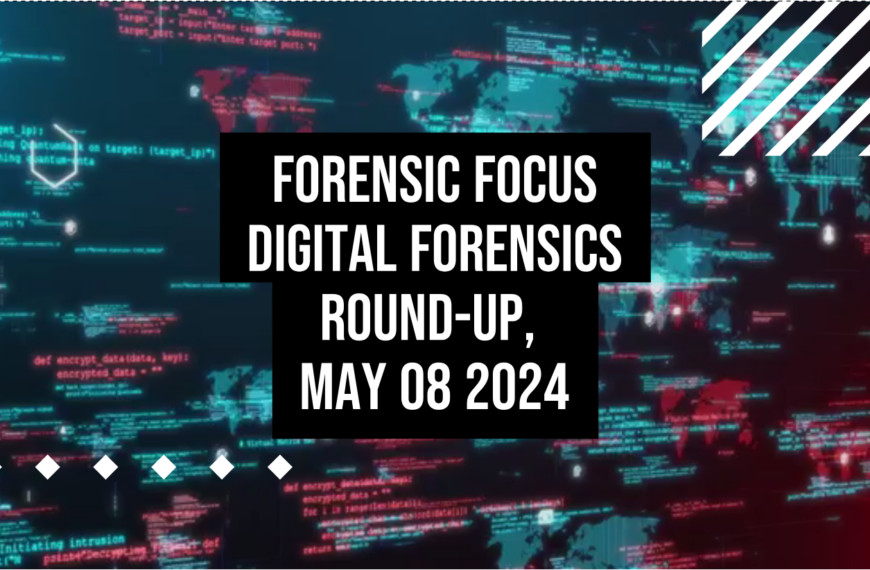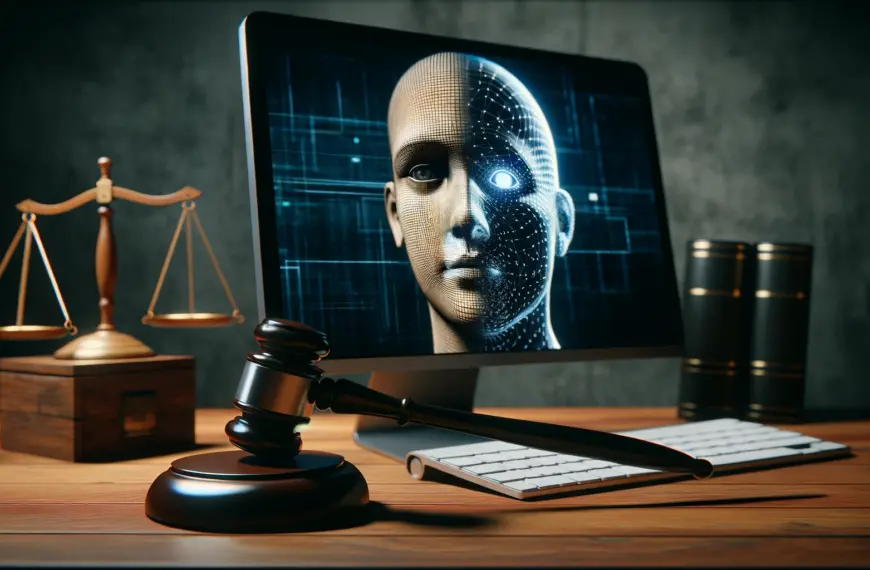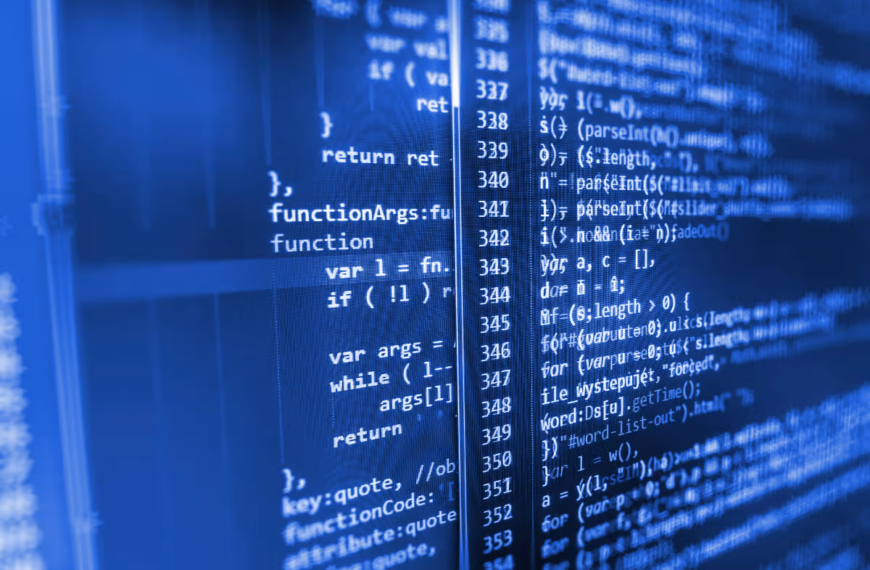Hello, I’m Darryl Pfeif and I’m going to talk to you about our research project — ‘Introducing Digital Forensics in Secondary School’. This project was recorded with funding from the national science foundation and wouldn’t have been possible without the entire research team, our evaluators, and our project partners.
We’ve introduced digital forensic science in a virtual learning environment. So we’re both testing the curriculum and also the virtual learning itself. Our curriculum is modular and we’ve tested and piloted it in a number of varieties. So summer camps, computer lab sessions, after school, and currently in a hybrid and also remote learning classroom.
Our prime directive in this project was to assess whether digital forensic science and cybersecurity would be an interesting subject matter to engage more young women and underrepresented underserved students in this field. Cybersecurity in particular has the ability to fuel systemic change and for many of the students we hope to serve, could provide a vehicle for them to escape multi-generational poverty.
In addition our project objectives were to develop a learning environment and test it. So, can you really engage students in computational thinking and scientific inquiry and how we can use digital evidence in particular to hone these skills and abilities, and also look at technology and the complex issues around technology.
In addition, we have been assessing whether this can be used to increase privacy and security awareness, and I can report that the findings here have been quite strong.
There is nothing like looking at the results of a mobile investigation to encourage one, to be more mindful of one’s own privacy and security.
In our lab, we have taken an approach where we are blending really deep technical learning with the scientific principles and also ethics and responsible use of technology. So we’re doing forensic analysis and examinations, but we’re having students walk through these and discuss both the ethical concerns and also look at how this data would be used in a quarter in the real world setting.
With the guidance of our project partner The National Girls Collaborative Project, we have refined these principles for the instruction and design of our curriculum, and have used them really as a basis to develop all of our missions. And we’re walking the students through these missions in the role of investigators. The pedagogical framework is based on the IDLE model and our virtual lab is where all of the primary curriculum is stored.
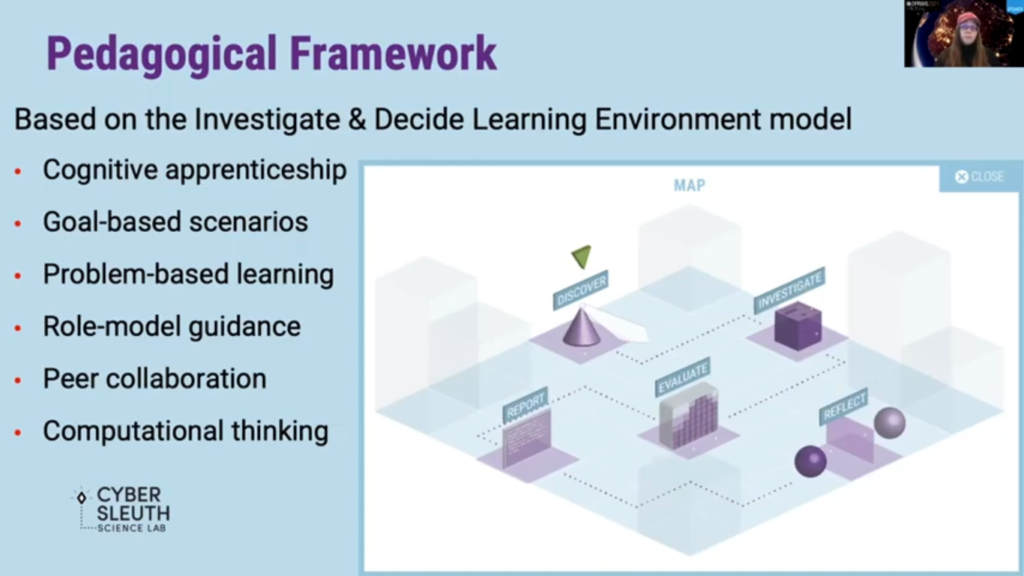
And this has allowed us to really get a good sense of what resources and supports the teachers and the students are using most. So, are they watching videos? Are they looking at the how to guides? Are they doing the exercises and kind of, where are they spending their time and which of these different kinds of resources they are using? And this, this is kind of to tease out how people learn in this online environment.
The virtual toolkit allows us to provide access to professional tools and also hosts the mission data in a way that is a controlled setting and takes some of the burden off our pilot partners. To date, we have reached well over a thousand students directly; walking them through the education, we’ve got 30 to 70 hour hours of content.
We’ve reached students all across the US in Baltimore, New Orleans, Seattle, and Las Vegas, and teachers all over the world. As our project was iterative in nature and quite new to introduce both this subject material in this grade range, we did a lot of focus groups and testing, and worked closely with our external evaluator to make sure that we are assessing the learning and comprehension, and we’re using that data to be iterate both the curriculum and add into our development process.
So far, the research outcomes have been quite promising. We have direct knowledge that some of the students who were in our earlier pilots and they have already moved through the 10th, 11th, 12th grade into college have opted to pursue this as a pathway. And a number of our students have also come back to us as facilitators and are helping to train and educate other students.
This would not have been possible without the support of our many pilot partners and project partners. And at this point, our future work is really focused on providing more support for the teachers, expanding the role model database, reaching out to institutions of higher learning that have curriculum programs in this content area to encourage and attract more participation and developing more partnerships with public and private universities and institutions. So I hope you have lots of questions. I’d love to answer all of them! I can also be reached at daryl@cybersleuthlab.org. Thank you very much for your time.








